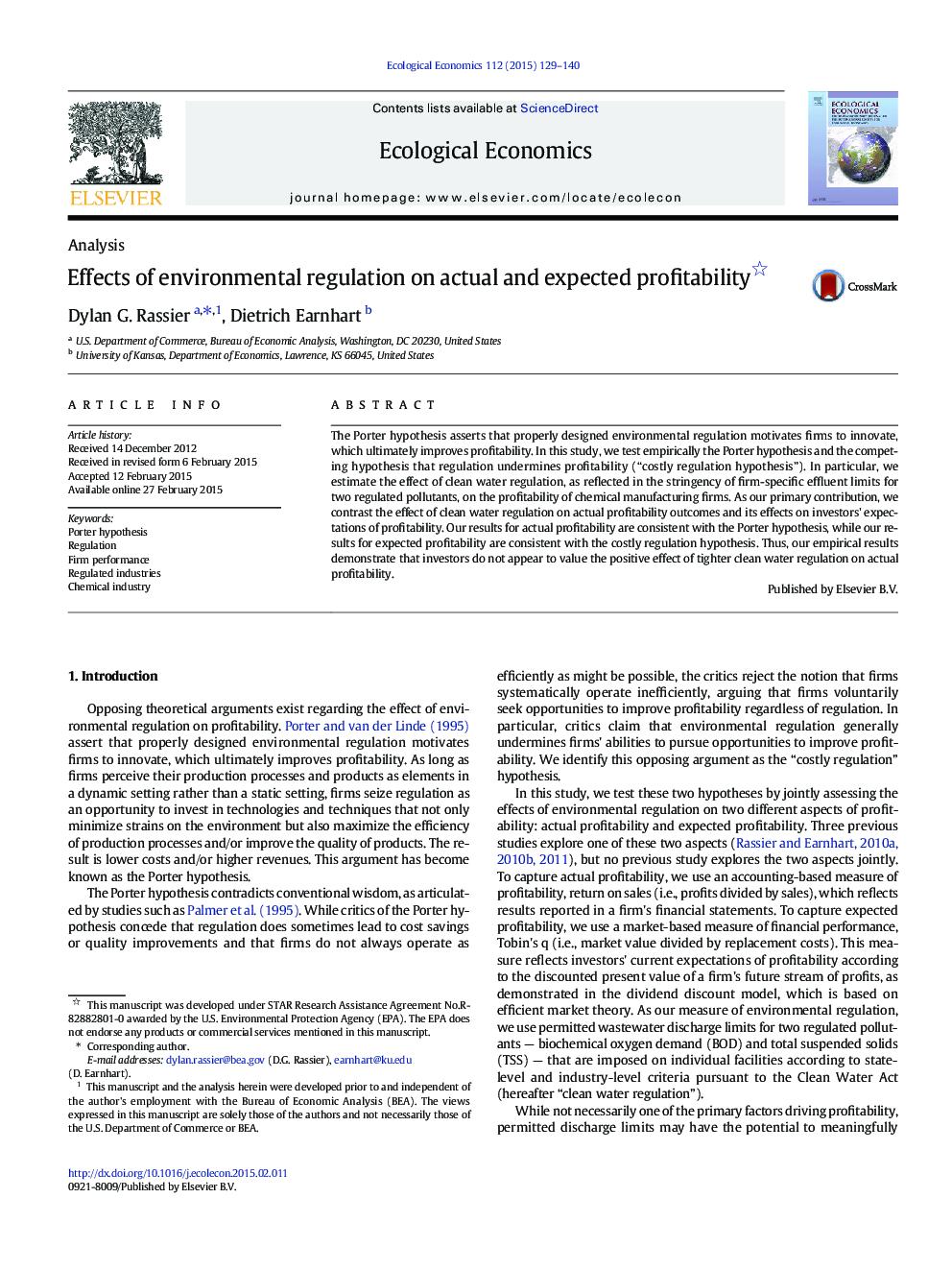| Article ID | Journal | Published Year | Pages | File Type |
|---|---|---|---|---|
| 5049408 | Ecological Economics | 2015 | 12 Pages |
The Porter hypothesis asserts that properly designed environmental regulation motivates firms to innovate, which ultimately improves profitability. In this study, we test empirically the Porter hypothesis and the competing hypothesis that regulation undermines profitability (“costly regulation hypothesis”). In particular, we estimate the effect of clean water regulation, as reflected in the stringency of firm-specific effluent limits for two regulated pollutants, on the profitability of chemical manufacturing firms. As our primary contribution, we contrast the effect of clean water regulation on actual profitability outcomes and its effects on investors' expectations of profitability. Our results for actual profitability are consistent with the Porter hypothesis, while our results for expected profitability are consistent with the costly regulation hypothesis. Thus, our empirical results demonstrate that investors do not appear to value the positive effect of tighter clean water regulation on actual profitability.
